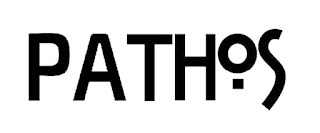In a perfect world, the irrational has no play in argumentation. Instead, arguments should be fully evaluated upon... well the actual argument. Our world, however, is unfortunately far from perfect, and many times irrational factors come into play - specifically emotion.
The appeal to pathos is one recognized completely in modern rhetoric. It is a powerful tool of persuasion, in fact many would argue it is too powerful. As I stated earlier, an argument should be judged for what it is, its logic and credibility. Why should emotion have anything to do with this? Well for all the irrationality that emotion holds, it is actually quite rational. Jeremy Rifkin's The Empathic Civilization argues that emotion is driven by a sort of instinctual and primal logic. Emotion hits hard because it has to do with topics that directly and strongly affect the audience. So when people say that emotion hurts argumentation, perhaps they are not looking closely enough.
For all the effectiveness emotion holds, it actually can be more hurtful than helpful. Pathos is in many way mitigated by logos and ethos. The three hold each other in balance. Push too hard with pathos, and you will lose credibility and validity. Argue without it, and you will have a lacking attempt at persuasion. Take, for example, The Atlantic article I mentioned in my post "Anonymity." There, commenters took highly emotional approaches, trying to win arguments even through soft threats! Sure, maybe in person a threat can be taken with some validity, but in an anonymous setting it deters the audience. Those who focus far too much on pathos become increasingly obvious in their attempt to use it as compensation for a lack of argument foundation, and lose an appeal to ethos because of it. Pathos is, without a doubt, a double-edged sword. It is not the end all, be all, and is only as effective as you make it.

No comments:
Post a Comment